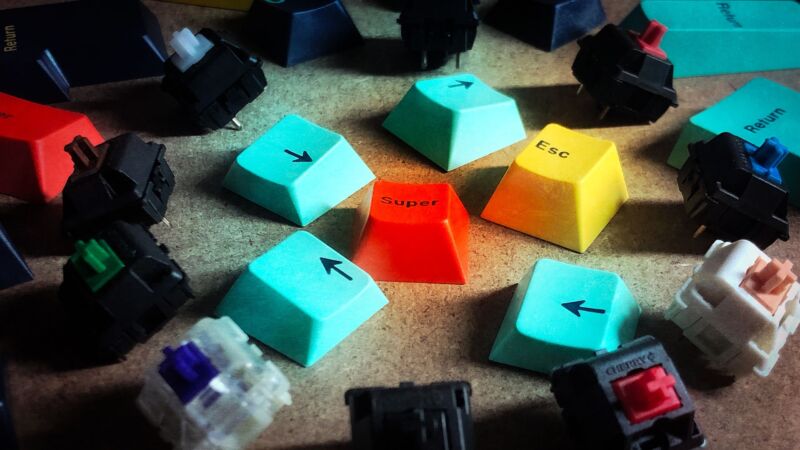
Enlarge (credit: Aurich Lawson)
So you've heard about mechanical keyboards and you want to learn more.
Sure, a standard membrane keyboard will get the job done, but the long-lasting keys and trademark tactile responsiveness of mechanical keyboards offer a premium experience that many people swear by. If you've ever remarked with dismay about a keyboard's "mushiness," a mechanical keyboard might be just the thing you need.
Every key in a mechanical keyboard has its own switch, and registering an input requires pushing a plastic stem inside the switch down, with resistance coming from the switch’s spring. In contrast, membrane keyboards (also known as rubber dome keyboards) use thin layers of plastic underneath the keys. Pressing a key sends a dome-shaped piece through a hole in the membrane, creating a circuit and sending an input to the PC. While membrane keyboards are typically thinner, quieter, more spill-resistant, and cheaper to make, they can feel flat and make it difficult to know if you’ve pressed a key or not. Mechanical switches offer way more physical feedback.
No comments:
Post a Comment